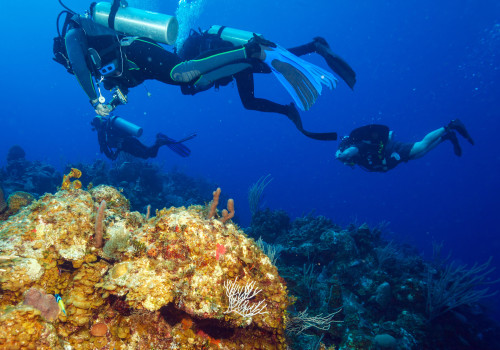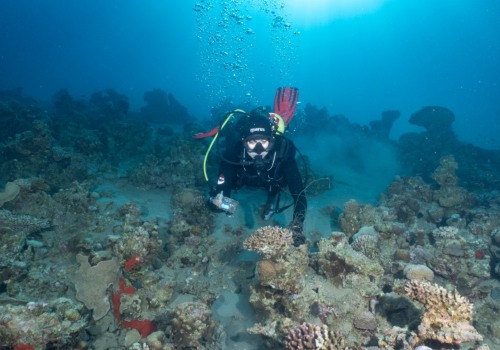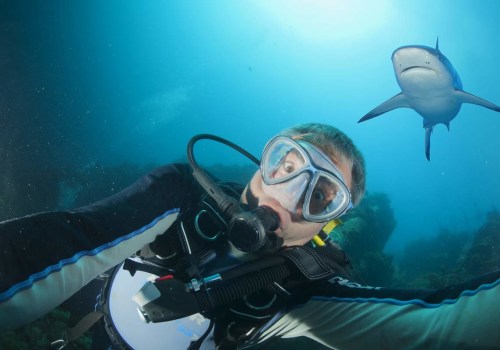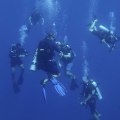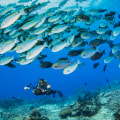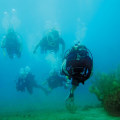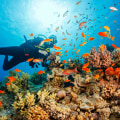Scuba diving is an exciting and rewarding activity, but it also comes with certain risks. Not to scare you, but these risks include decompression sickness (DCS), air arterial embolism, and, of course, drowning. There are also effects of diving, such as nitrogen narcosis, that may contribute to the cause of these problems. However, careful training and preparation make these events quite rare.
Developing decompression sickness (DCS), or 'the bends', is one of the most common health risks of diving.The term is used to describe an illness that results from a rapid drop in the pressure surrounding it. It occurs mainly in diving and deep sea diving because when you dive with compressed air, your body absorbs additional oxygen and nitrogen. As the body uses oxygen, the nitrogen dissolves in the blood and remains there during the dive. There are different levels of DCS and symptoms can appear up to 48 hours after the dive. Some cases can be very serious and even life-threatening.
It's important to take the necessary preventive measures before and after each dive and discuss your concerns with your doctor, especially if you have an illness or medical condition. The partial pressures of oxygen and nitrogen at sea level are around 0.21 atm and 0.78 atm, respectively. When decreasing, the partial pressure of the gases increases. When a diver reaches a depth of approximately 131 feet (40 meters), the partial pressures of oxygen and nitrogen are approximately 1.05 atm and 3.9 atm, respectively. Symptoms of nitrogen narcosis include a sense of euphoria, disorientation, lack of judgment, difficulty concentrating, hallucinations, and others.
The condition usually goes away when you ascend, but in some cases it can increase the risk of developing other conditions, such as DCS. It's important to learn more about nitrogen narcosis so that you can recognize it in yourself and others. Barotrauma is also one of the most common health risks of diving and is caused by increased underwater pressure. There are different types of barotrauma, including sinus, dental, and pulmonary barotrauma, but the most common type experienced by divers is middle ear (otic) barotrauma. It can cause extreme pain, fluid buildup, bleeding, and even hearing loss.
Middle ear barotrauma is often experienced by divers who are unable to equalize middle ear pressure during descent. However, equalization is easily done through several maneuvers such as swallowing or pinching your nose and blowing. If you can't equalize for whatever reason, it's best to finish the dive. Although not one of the most common risks of diving, oxygen toxicity is a medical condition that can have serious negative effects on the body. Open circuit, rebreather, and Enriched Air Nitrox (EAN) divers who use mixed gases are exposed to the risk of oxygen toxicity. For most divers this condition isn't a problem but at extreme depths too much oxygen becomes toxic.
The two types of oxygen toxicity are central nervous system (CNS) oxygen toxicity and pulmonary oxygen toxicity (POT), the former being more common among divers. When diving to an extreme depth it's important to know what to look for in both yourself and others. Symptoms include seizures, visual disturbances, nausea, spasms, dizziness, and irritability. There's no guarantee that oxygen toxicity won't affect deep-sea divers even with preventive measures but there are some things you can do to minimize the risk: don't exceed your depth limit; use a dive computer for tracking; analyze your gas at all times; avoid exhaustion when underwater; make sure you breathe easily; when you ascend too quickly nitrogen bubbles can form in your tissues and blood - this is called decompression sickness. If those bubbles block a small artery they can cut off part of the blood supply. Holding your breath can also cause the air in the lungs to expand which can lead to ruptures of the lung tissue and arterial gas embolism due to the release of nitrogen bubbles into the arterial circulation.
Symptoms include joint and muscle pain irregular heartbeats chest pain blurred vision and anxiety among others. Gas or air embolism is one of the avoidable risks of diving; limiting the depth of the dive taking a slow climb breathing normally and not diving with a cold are some of the many preventive measures you can take. Running out of gas to breathe is a common risk in diving especially among divers who lack training or inexperienced divers as it often occurs due to poor gas management. It can also occur due to equipment failure and unforeseen effort. Air is the respiratory gas most used in diving if you're not a commercial diver technical diver or practice other forms of advanced diving you'll most likely dive with an air supply. In this case it is recommended to ascend with approximately 50 bar (500 PSI) of respiratory gas remaining in the tank according to Divers Alert Network entrapment and entanglement are triggers for approximately 20 percent of fatal diving accidents they are common factors in deaths due to suffocation when you dive in an elevated environment without direct vertical access to the surface all of the risks of diving are inherently higher. Another risk of diving is saltwater aspiration a rare condition suffered by those who inhale a seawater mist this is due to faulty equipment or poor diving technique but it can also happen when you are about to drown diagnosing seawater aspiration can be difficult because the symptoms are similar to those of decompression sickness and the fact that you are about to drown. This bone necrosis is often associated with decompression sickness although a clear correlation between them has not yet been established it is more likely that there are predisposing factors that depend more on variables related to high blood pressure that contribute to its development DON technical divers and those who regularly dive deeper than 100 feet (30 meters) are advised to have a long bone study done every few years this is also true for those who perform inadequate decompression on a regular basis. I have been a PADI OWI for almost 20 years now...

